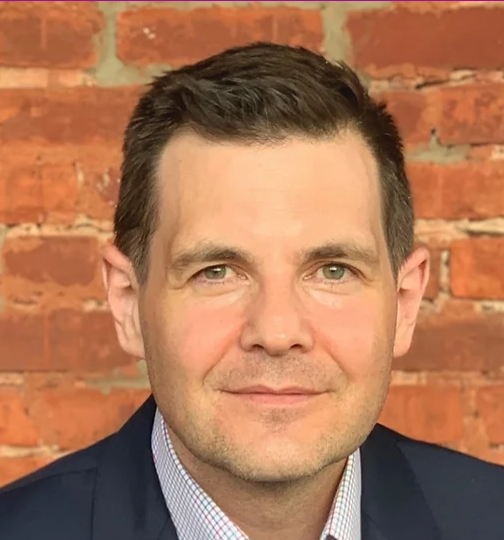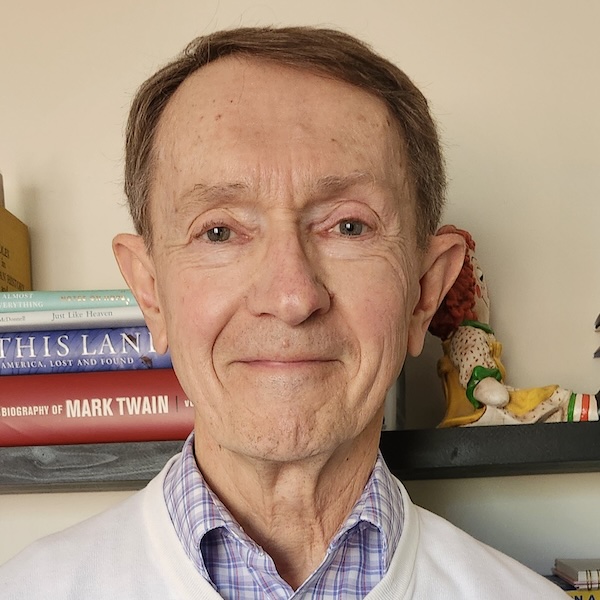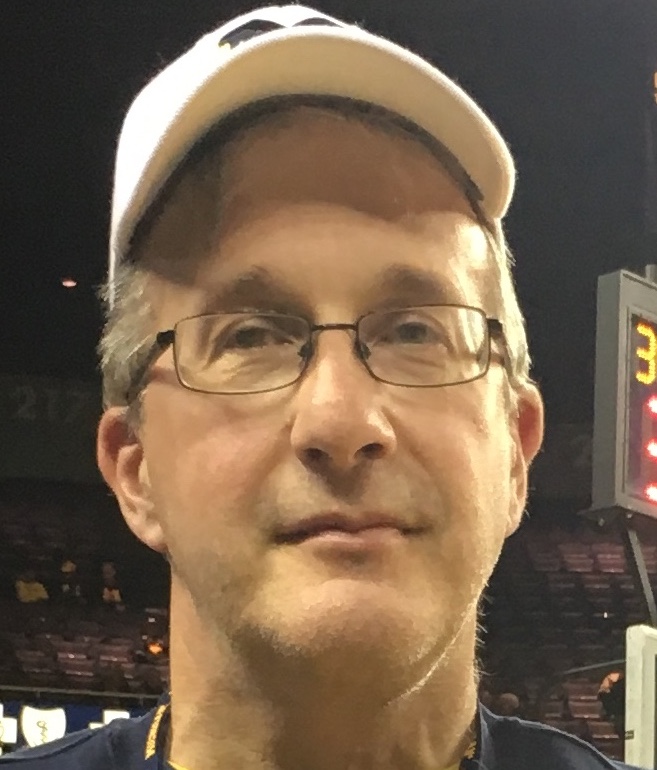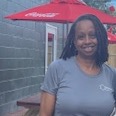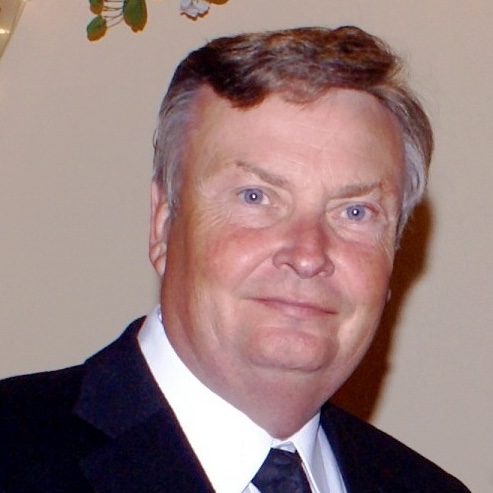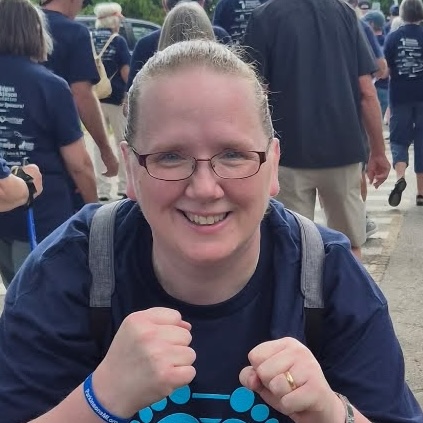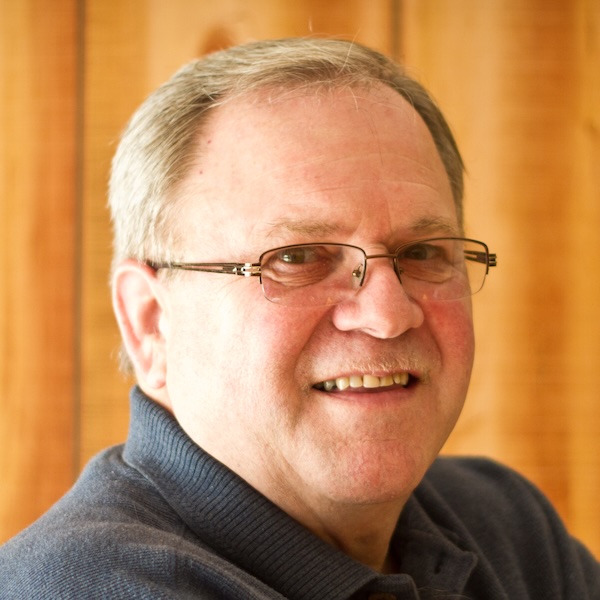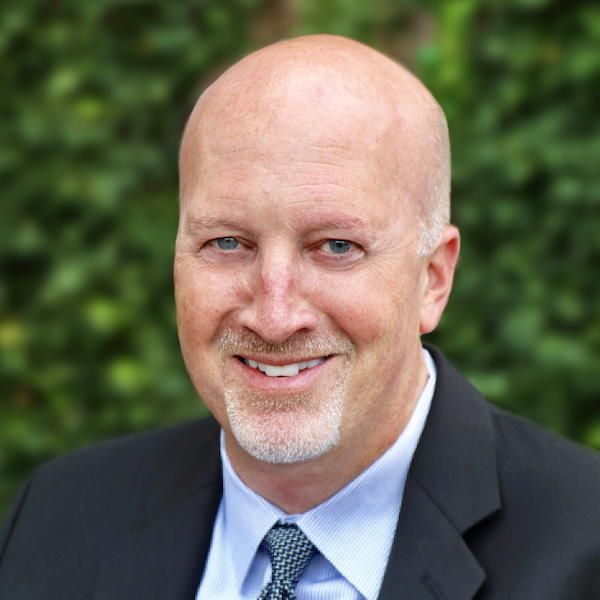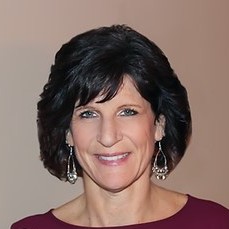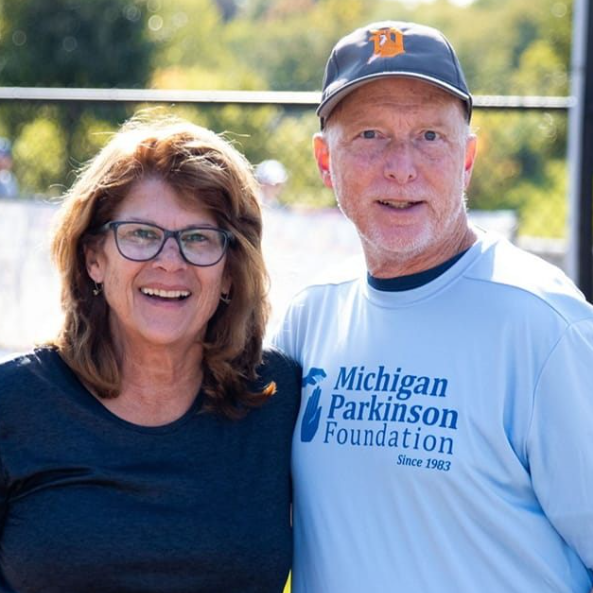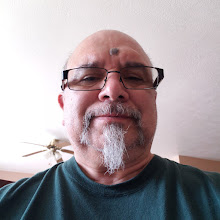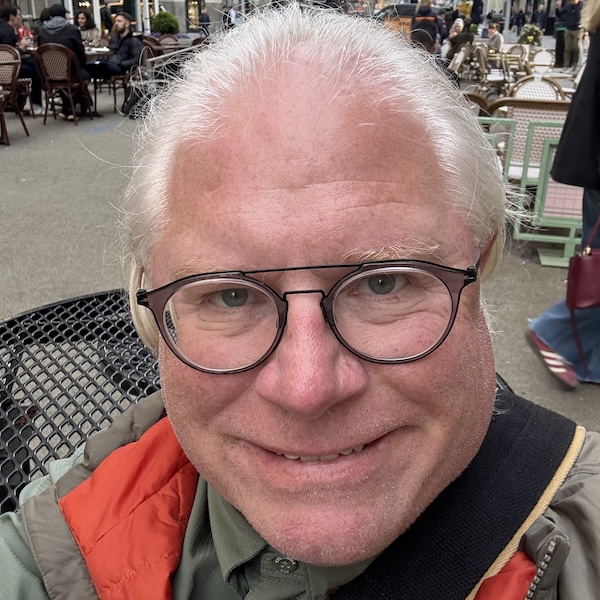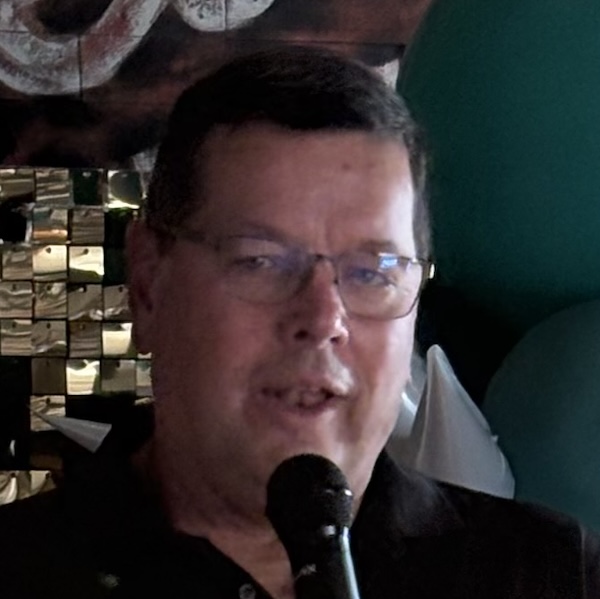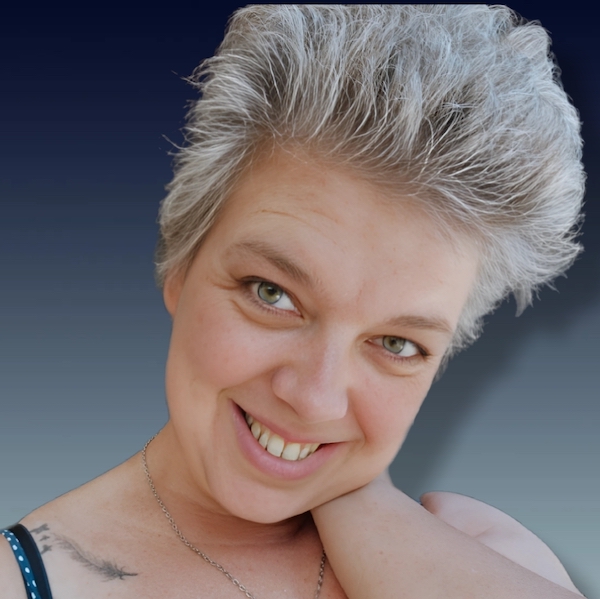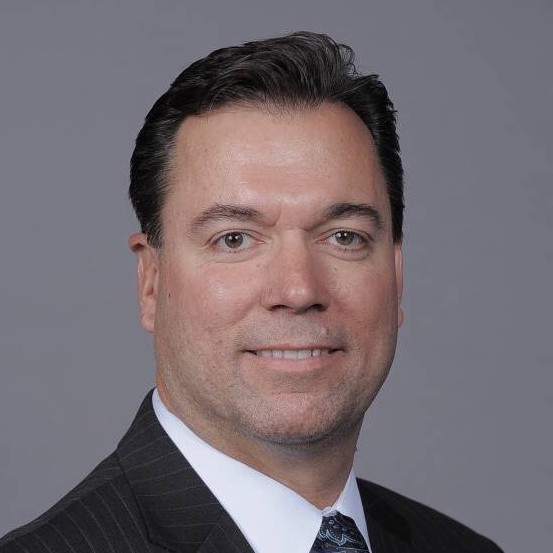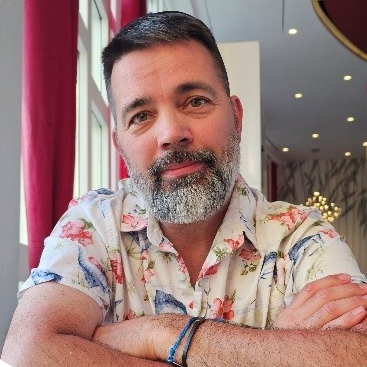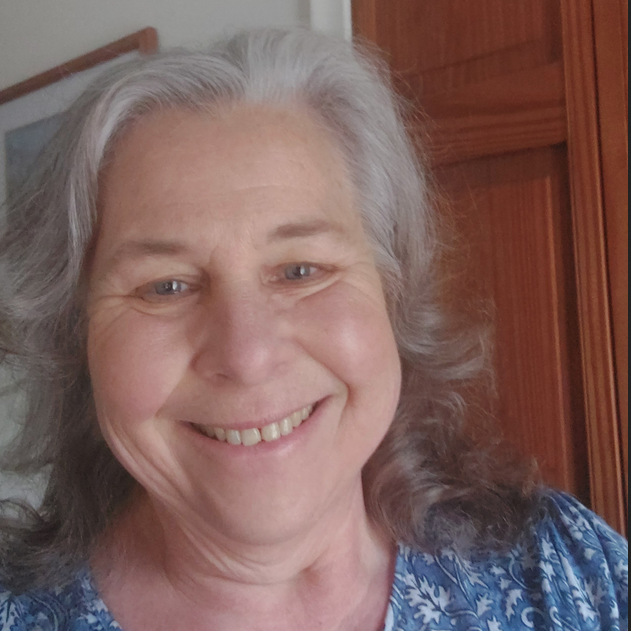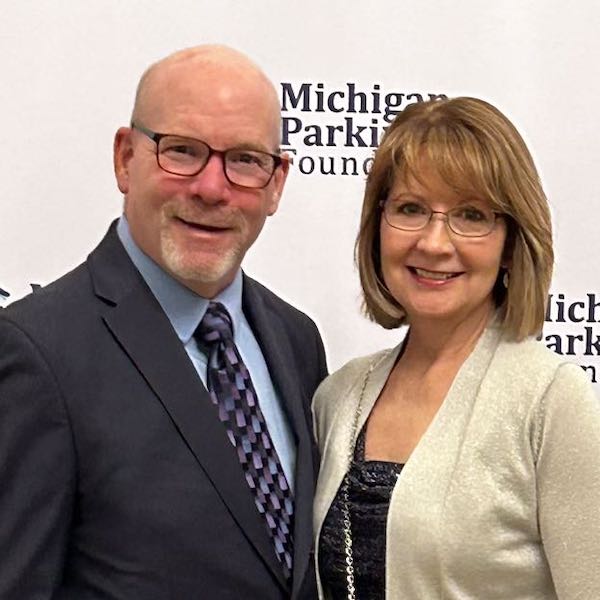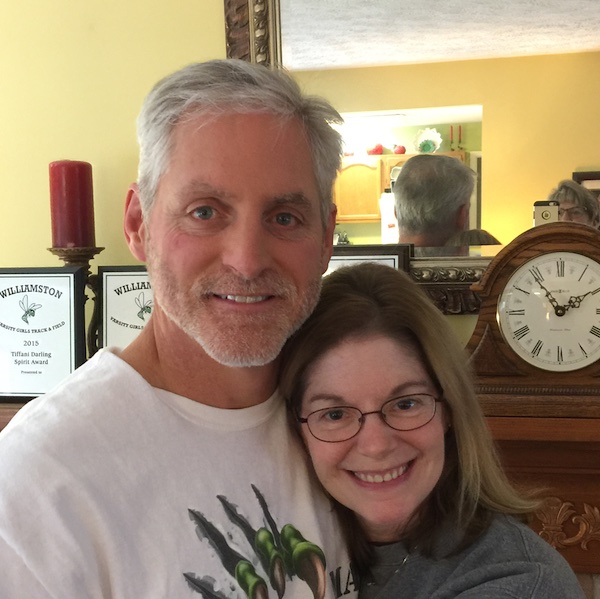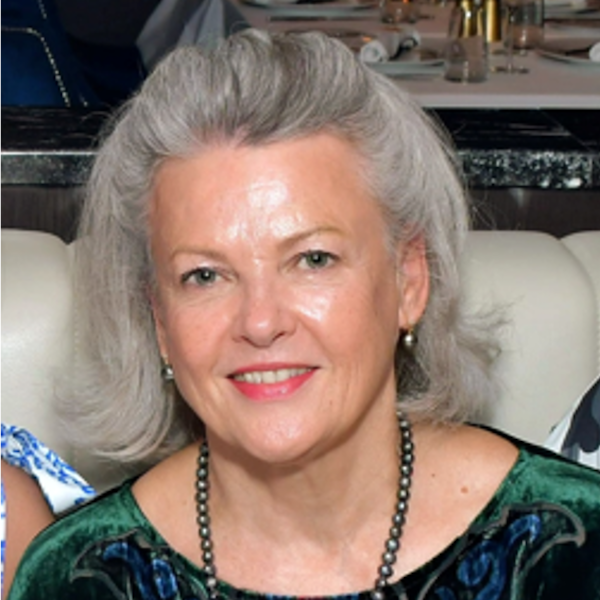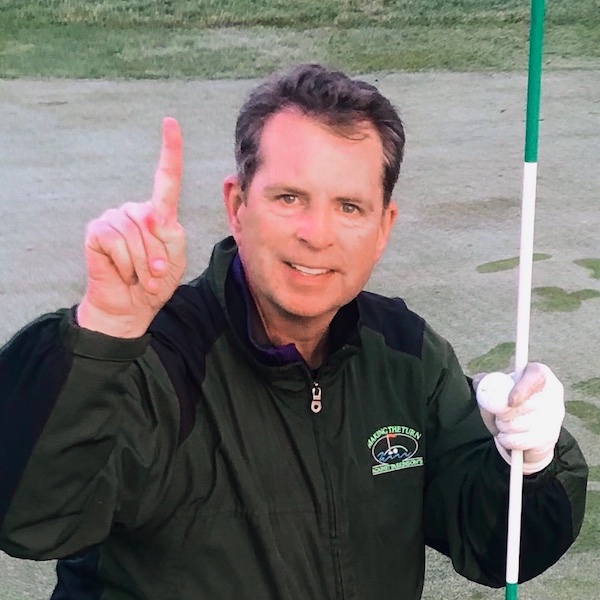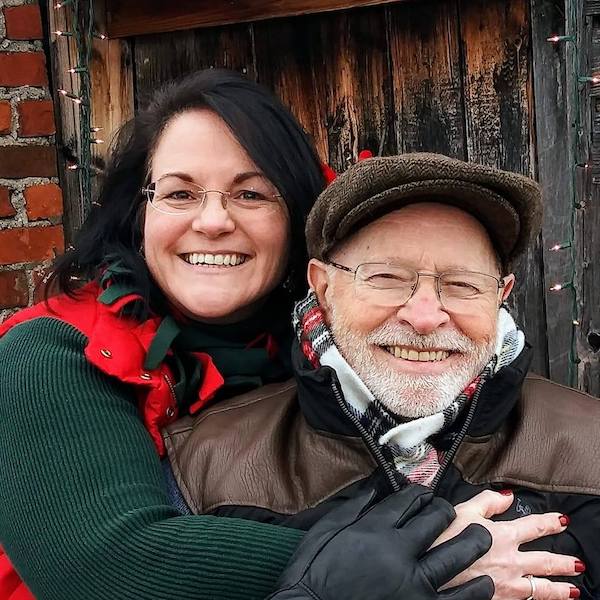If you would prefer to search for a mentor by phone, please call us at 248-433-1011.
(If you are having a medical emergency, please call 911.)
Aaron Lewis
At 43, while I was a full-time anesthesiologist, I was diagnosed with Parkinson’s disease. I knew no one else my age in similar circumstances. While I have a great neurologist and very supportive colleagues and coworkers, I often felt alone.
As I neared retirement I felt strongly that doing something meaningful would be key to my happiness and satisfaction. Furthermore, meaningful came to be defined as helping those newly diagnosed and suffering with the unknown future of Parkinson’s as well as spending time with the socially isolated. For me, this journey is just beginning but my experience thus far has been much more positive than anticipated, deeply philosophical and ever humbling.
Contact Aaron,
Aaron Lewis
Mentor for People with Parkinson's and Newly Diagnosed
Royal Oak, Michigan
Andy Kronk
I retired from a career in school and clinical psychology at the age of 67. Three years later, in 2017, I was diagnosed with PD. Looking back, there were some early signs that I had attributed to aging. Since then I’ve been on the path of continuous learning and frequently reminded of the power of sharing our PD experiences.
Several years ago my physical therapy clinic started an online support group for clients taking Zoom exercise classes (Rock Steady Boxing). Since then, another member and I have taken over facilitation of this weekly discussion group. I’d like to be able to give a listening ear to other PD folks and perhaps offer some insights from my experience. It’s important to keep an optimistic outlook and stay motivated!
I’m lucky to have a supportive wife and family. They recognize my efforts to keep moving every day. I’ll add that after playing guitar since about age 16, I gave it up when it became physically difficult. About that time my wife wisely got me a ukulele, which is easier. Maybe I can’t play as well as I used to, but I definitely can play. You will usually see me at one of the local ukulele group meetings.
This brings me to one of my principles. Think back to things you did that brought pleasure and satisfaction, and possibly brought you together with people. There may be ways to adapt that could surprise you!
Contact Andy,
Andy Kronk
Mentor for People with Parkinson's and Newly Diagnosed
Livonia, MI
Chris Thurner
I hooked up with my new buddy “Parkinson’s” officially in 2016. Since then, we go everywhere together, the good, the bad and yes, the ugly, While challenging, this journey has provided me the opportunity to meet so many great people and build a solid support group. I am a lucky guy!
Just like you, there are things in my life that are important. These things are my family, my friends, my coworkers, the Detroit Tigers, and MY WOLVERINES…GO BLUE!
I will tell you what makes me and my story different than the others. I have lived in Michigan 62 years. My first car was a Dodge Dart. I broke my neck and carried at 198 bowling average. I mow the lawn. I have gone through the challenge of telling my family, declaring at work and maintaining a full-time position, co-leading the disability support group at work, running a PD conversation group, buying a hi-rise toilet seat and medicine for constipation, making videos to promote understanding, helping organize the Grand Rapids Hero Walk, and being a caregiver for a family member with epilepsy. Through all of this, I have learned to be as comfortable speaking to a hundred people as I am to one. We can talk about anything and everything.
Maintaining a positive perspective is what gives me the strength to stand up and advocate for everyone in my community. Part of this is that I love my medical team. They have got my back. I laugh every chance I get. I love to kick PD’s behind every day. I love to see others do the same.
This is what I know: I have Parkinson’s. I know eating well and exercise are key to any health battle. I have an amazing network to help me stay in touch with what is going on in the world regarding PD and I pay attention. I take my meds and do not miss medical appointments. I listen, I read, and I figure out what works to win. Then I do it.
Why am I doing this? I want you to win. That means winning however you define it. Each step we take towards winning brings all of us closer to winning.
Contact Chris:
Chris Thurner
Mentor for People with Parkinson's and Newly Diagnosed
Caledonia, MI
Deborah Farmer
September 19, 2020, a date I will always remember, the date I was diagnosed with Parkinson’s. For me that word meant that my life was over, here I was 67 years old with a disease, that there was no cure for, and I was going to spend the rest of my life needing someone to take care of me. I was no longer going to be able to do the simple things in life that I took for granted.
I soon found out how wrong I was! I found a support group (Detroit Support Group). My neurologist referred me to Speech Pathology, Physical Therapy and Occupational Therapy. I also started exercising 7 days a week for at least 1 hour a day. The best medicine for PD is to get out and join groups to meet people that know and understand how you feel. I am now a part of Rock Steady Boxing (Parkinson’s Movement Center), Motor City Upbeats Therapeutic Singing Club, Water Aerobics, and I also started a personal Journal about my feelings concerning Parkinson’s which I named Fear Knocking at My Door. My best support is my family, they have been with me since day one of my PD journey.
I am inviting you to join me in this journey, together we can slow this disease down if not stop it all together.
Contact Deborah,
Deborah Farmer
Mentor for People with Parkinson's and Newly Diagnosed
Detroit, MI
Dennis Wylin
Hello, I’m Dennis, I was diagnosed with Parkinson’s in May of 2024. A little background information that I believe contributed to my Parkinson’s.
I grew up on a farm and was exposed to many different toxic chemicals. At age 31 I was diagnosed with histiocytic lymphoma cancer and underwent 6 sessions of chemotherapy. The doctors at that time felt my cancer probably came from the exposure to the chemicals.
I found out that I have a reaction to alcohol that led me to my neurologist. Who suggested that I have a Spectdat Scan where I was diagnosed with Parkinson’s. I haven’t been able to smell anything and have had constipation for over ten years without knowing they were symptoms of Parkinson’s. At 75 years old I blamed most of my symptoms on getting older, I literally knew nothing about the disease. Since then, I have become active in Rock Steady boxing and met a wonderful group of people. I asked the group a question one day about why you are here and was surprised that many answers were for the comradery, and that it seems to help. I am a big fan of Rock Steady Boxing.
I am very familiar with the awkwardness you encounter when people first find out that you have Parkinson’s, very similar to what I encountered when they found out I had cancer, not knowing what to say to you. I’m a person who understands that sometimes you just need someone to listen and understand what you’re going through.
Contact Dennis
Dennis Wylin
Mentor for Newly Diagnosed People with Parkinson's
Macomb, MI
Holly Leach
I was diagnosed at the age of 46 and was shocked. I would enjoy making friends and being a helpful hand as much as I can.
Contact Holly:
Holly Leach
Mentor for People with Parkinson's and Care Partners
Traverse City, MI
Howard Colby
When you first hear the diagnosis that you have Parkinson’s Disease, or even if you have had it for a period of time, your life is transformed right in front of you. You actually allow all the negative thoughts of “WHAT or WHY” flood your mind. All you can see is every false image of who you are and what you will become. All you really want is to feel good and to be accepted for the right reasons. So what is happening right now is that all the “HOPE” for your life is being shattered in your present & future self. It is being stolen from you, leaving you with nothing but emptiness.
I believe as mentors it is our calling to help by being diggers. “Blessed is the man who digs a well from which another may draw Faith & Hope”. We help find the answers for the persons who are caught up in the trap of Parkinson’s Disease. We are the ones who stand beside them as they find strength and peace in their hearts. When their hearts are strengthened they can look into the face of Parkinson’s and say, “You cannot define me. That is Jesus’s job.”
It will be 3 years ago this August (2022) that I was diagnosed with Parkinson’s Disease. I have learned in over 35 years as a minister that a strong support system is an absolute must. My wife, Lori, and my family are the core strength of my support system. I increase my endurance and mobility thru exercise programs, such as Big and Loud and Rock Steady Boxing, with coaches and others who have PD and have also become friends and encouragers. I’m a firm believer that with your faith and your strong support system you can be an overcomer.
My decades of experience working with individuals as a life coach, mentor, councilor, pastor, and helping others, often those with destructive behaviors, to see through the fog of a lifetime of bad choices, enables me to use these skills to help those dealing with Parkinson’s.
The Lord is not in love with a new version of your future self. He is in love with who you are right now.
Contact Howard:
Howard Colby
Mentor for People with Parkinson's and Newly Diagnosed
Port Huron, MI
Jeffrey Sloan
I believe I have a unique opportunity to speak as both a PD patient, diagnosed in September 2019 in my mid-fifties, and a care partner for my father, who also had PD, diagnosed in late 2020. I firmly believe that you must keep moving to slow down the progression, so I’ve embraced that philosophy to the fullest. I am a big fan of Rock Steady Boxing for PD, not only for the physical benefits but for the new friends you’ll make and the connections you’ll soon embrace. I also find great connections through a local PD support group I meet with monthly. I look forward to speaking to you as we navigate our PD journey.
Contact Jeff:
Jeffrey Sloan
Mentor for People with Parkinson's and Newly Diagnosed
Grosse Pointe Farms, MI
Jennifer Haskell
I am a 67 year old retiree and I live in Northwest Lower Michigan with my husband of 43 years. We have both experienced caring for and assisting our aging parents through a variety of health issues including recovery from a stroke to the effects of Parkinson’s Disease and dementia. It has been a trying experience and at various times we needed to seek out the advice of people both professional medical personnel as well as lay-people who had had similar experiences that were willing to “talk through” our situations and found it really helpful. My mother-in-law passed in 2020, my father in 2024 and my mother in 2025. I now have time available to listen to and walk along side someone who may be experiencing something similar. I started attending our local Parkinson’s Support group when we were caring for my mother and I realized there are so many care-givers who are looking for someone to talk to because “care-giving” can be quite isolating. So I wanted to make myself available as needed.
Contact Jennifer:
Jennifer Haskell
Mentor for Care Partners
Kewadin, MI
Jennifer Traver
At the age of 42, after experiencing a tremor in her left pinky, Jennifer was diagnosed with Young Onset Parkinson’s Disease. Her first thoughts were shock and fear, as this diagnosis never crossed her mind. She knew nothing about Young Onset Parkinson’s Disease. Initially, her main concern were her young children and spouse and how the disease would impact their lives and their future.
While living with Parkinson’s disease can be challenging, she has never asked the question, “`Why.” Instead, she would rather focus on the “what”- What can she do to try and stay healthy both mentally and physically and also what can she do to help make a difference. With the help of her faith and her very supportive family and friends, she knows she will persevere. Rather than feel sorry for herself, she is determined to make something positive out of the situation. She is using her passion to provide means for continued awareness and research for a possible cure.
Shortly after her diagnosis, Jennifer decided she needed to be a voice and to bring hope to others battling with this disease. She started a non-profit organization; has successfully started a support group in Southeast Michigan; has held several successful fundraisers and has had a presence throughout the states of Michigan, Ohio, Illinois and Florida at Parkinson’s walks. On a day-to-day basis, the goal is to continue to bring hope, awareness and support to anyone touched by this disease.
Contact Jennifer
Jennifer Traver
Mentor for People with Parkinson's
Monroe, MI
Joe and Stephanie Staub
We were introduced to Parkinson 35 years ago when Joe’s father was diagnosed. Prior to that we had barely heard of Parkinson’s, let alone understood what it was. We were not his primary caregivers, but took on an ever-growing set of responsibilities around his house so he could maintain his independence and quality of life.
Twenty years later, Stephanie’s mother was diagnosed. She stepped into the role of primary caregiver, doing the shopping, banking, cleaning, laundry, coordinating doctor’s visits and managing the medicine. Again, we assumed responsibilities around her house so she could maintain her independence.
Then eight years ago in 2015, Joe was diagnosed. He went home and crawled into bed for 2 days. Stephanie on the other hand went into action mode. Taking the lessons that we learned with our parents, we made an appointment at the Michigan Parkinson Foundation, researched the right neurologists for us, and looked for clinical research trial opportunities.
We are a team! Stephanie understands the progression and changes I am going through and adapts our lifestyle to accommodate. I am overwhelmed by her willingness to take on this challenge while keeping a positive outlook as we walk this journey together.
We live an active lifestyle, working part-time, visiting with friends, volunteering, golfing, camping, and exercising. We spent 3 months this past year traveling with our camper. We realize we are not in control, but we keep a positive outlook and believe we can make a difference. We do that by volunteering at organizations and related events, working on committees, talking with students in physical therapy programs and participating in clinical research trials. It is our belief that without an understanding of the disease; diagnosis, slowing the progression, halting, and ultimately eliminating the disease will not be possible.
Feel free to reach out to Stephanie as a caregiver, or myself as a person living my best life with PD, or both of us as a team. We’d gladly share our experiences:
Joe and Stephanie Staub
Mentor for People with Parkinson's and Care Partners
Bloomfield Hills, MI
Jose Segovia
I have been dealing with Parkinson’s for the last 17 years I feel that I might be able to help someone.
Contact Jose:
Jose Segovia
Mentor for People with Parkinson's
Buckley, MI
Kurt Nyberg
I spent 35 years in executive management where mentoring was a critical job skill. It is my hope that some of my knowledge and experience in dealing with Parkinson’s disease I am able to share with an individual who is going through the same situation that I worked for almost 10 years and employees and my employer never knew.
Contact Kurt
Kurt Nyberg
Mentor for Newly Diagnosed People with Parkinson's
Traverse City, MI
Mark Talbot
September 26, 2004 the day my late wife (Toni) was diagnosed at the age of 46. I never missed a neurology appointment after that. We began our journey immediately with research. What can we expect? What is the best route? What can we do to fight this. We signed up for clinical research studies. She started specific exercise’s 6 to 7 days a week. Home modifications started to make doors open easier and continued for the next 18 years!
We became involved with the local support group and MPF. We both continued to work full time. I picked up more responsibilities around the house. Eventually Toni had to sell her business as PD progressed. DBS came into the picture and her life improved but not enough to return to work. I retired in 2014 to become a full -time caregiver. We traveled all over the country for many years. I became the PD Support Group Facilitator in 2016.
PD started to take Toni’s voice which was devastating as her career was built around public speaking. We eventually found the Speak Out Program and she regained her voice and we become advocates for the Parkinson Voice Project. Which led us to be able to share our journey to many Speech, PT and Medical students in the Midwest.
When traveling anywhere I made sure we had extra medicine, proper papers. Thank you, cell phones! Then while traveling Toni’s journey ended unexpectedly on Feb 5, 2025. As a primary caregiver what happens when its over in a second. I was blessed that we had some of those hard talks between ourselves then our children.
I’ll gladly share my experience on any of this.
Contact Mark
Mark Talbot
Mentor for Care Partners
Williamston, MI
Melissa Marcie-Hrbcek
I am a Person with Parkinson’s who was diagnosed prior to my 37th birthday. Hearing those words, “You have Young Onset Parkinson’s Disease,” I’ll never forget those feelings of confusion, heartache and not knowing where to turn for help. I had three kids still in school and I was working full-time. Then I felt I didn’t exactly know what Parkinson’s meant but I didn’t have time for it.
I quickly learned over the last 8 years that my lifestyle was going to have to change as “Mr. P” (Mr. Parkinson’s) had its own plans for me. After going through the most unique and powerful self-observation, self-healing, Deep Brain Stimulation, I understood that this is simply a new chapter in my life.
I may not be able to skydive like I did before, but I’m learning how to navigate and enjoy life within itself. My perspective on most things is that I cannot lose my sense of humor. I am determined to make the rest of my years, the best of my years, one day at a time.
Contact Melissa:
Melissa Marcie-Hrbcek
Mentor for People with Parkinson's and Care Partners
Croswell, MI
Nate Jolliff
“You have Parkinsons Disease.” I will never forget those words in July 2021 when I was first diagnosed with PD at age 55 by a Neurologist with poor bedside manners. I was devastated with this shocking unexpected news, and in a dark place emotionally and mentally. To seek a 2nd opinion, I contacted a highly regarded Movement Disorder Specialist. She was wonderful and spent 2 hours with my wife and I confirming my diagnosis. After the military, I built a successful career over 20+ years in the automotive industry in senior leadership positions of increasing responsibilities. I have been sought after frequently in my career as a Senior Leadership Mentor to high potential employees.
The US Department of Veterans Affairs has classified me as a 100% service-connected disabled US Marine Corps veteran due to contaminated drinking water at Camp Lejeune, Jacksonville, NC. However, I am living my best life with Parkinson’s with diet, daily exercise, and strong positive mental toughness.
As a former highly trained US Marine, I feel that I am uniquely qualified to help support Veterans in the Parkinson’s community, and someone newly diagnosed with Parkinson’s. My sincere objective is that by sharing my story, I can improve someone’s quality of life and address the inevitable anxiety and fears that come with our shared PD journey.
Contact Nate:
Nate Jolliff
Mentor for Newly Diagnosed
Oakland, MI
Richard Pointe
Hello, my name is Rich and the motor symptoms of Parkinson’s Disease first appeared for me around 2016 when friends and family noticed changes in my walk and at the same time, I had been struggling with muscle rigidity on my left side. Eventually, my Primary Care Physician referred me to a neurologist which led to a diagnosis of Parkinson’s Disease in January 2019.
In May of 2019, I was struggling with the physical demands of serving as a Reserve Marine so with 20 years of honorable service I decided to retire from the Marine Corps Reserve. Later on it was revealed that the onset of this disease was linked to my exposure to neurotoxins during my military service in Iraq.
The disease has caused me to have physical limitations, increased anxiety, apathy, and stress, while also suppressing my ability to enjoy relationships, leisure activities and career accomplishments. In 2024 I retired from the workforce completely due to this ongoing struggle with Parkinson’s Disease. The disease has profoundly affected my physical and mental well-being, impacting my daily life, social interactions, and my profession.
With medication I continue to function well in most respects but as the disease progresses and the medication becomes less effective, I am truly concerned about maintaining a good level of physical ability in retirement.
Being retired, I now have the time to do the things that are important to me and one of those things is to help other Veterans process their diagnosis of Parkinson’s Disease. I am however willing and able to mentor to anyone with the need. I look forward to helping others with this disease.
Contact Rich:
Richard Pointe
Mentor for Newly Diagnosed People with Parkinson's
Harrison Township, MI
Rose Femminineo
I have been a support person to my husband who was diagnosed with Parkinson’s disease when he was 48 – over 17 years ago. Together, we have learned so much about the challenges of Parkinson’s disease, the resources that are available in the Detroit area, and the importance of connecting with other people who are dealing with Parkinson’s disease.
Contact Rose:
Rose Femminineo
Mentor for Care Partners
Taylor, MI
Sandy Ewasek
I was diagnosed with Parkinson’s in March of 2022. It was a complete surprise to me. I had been writing my symptoms off to aging or possibly a side effect of a medication. Until I connected to The Michigan Parkinson Foundation, I was frustrated with the lack of useful information out there. Once I found MPF I started learning how to live well with Parkinson’s instead of researching symptoms and life expectancy s. I would love to be able to help others get to that place sooner so they can live their best life.
Contact Sandy:
Sandy Ewasek
Mentor for Newly Diagnosed People with Parkinson's
Livonia, MI
Steve Femminineo
I was diagnosed nearly 16 years ago, and although I have had some physical decline, I maintain a generally optimistic outlook for the future. Early on, I made the decision to take the initiative to find out how to live my best life moving forward with this disease. As an athlete, I was happy to discover that exercise was key to slowing the progression of the disease. I also learned early in this journey that everyone’s experience with this disease is different, and that I shouldn’t “borrow trouble,” by assuming that symptoms other PD patients experienced would ultimately be my fate as well.
I have had not one, but two DBS surgeries, so I can speak of that experience first hand. Also, as a facilitator of the PD SELF program (a fantastic program that teaches self efficacy tools to newly diagnosed people with PD and their care partners) in Detroit for 5 years, I feel that my experience with that program would be helpful to those folks who are overwhelmed by a new diagnosis.
Although I have had to hang up my hockey skates, I can still golf reasonably well, and still enjoy a vigorous bike ride. My nature photography hobby which used to include walking great distances, lugging heavy cameras with huge lenses, has transitioned to short walks carrying a single lightweight camera and a built in zoom lens.
I am blessed to have my incredible wife Rose as my care partner, and tremendous support from my friends and family. I don’t know for sure what the future holds (but then again who does?), but my faith allows me to face that future peacefully.
Contact Steve:
Steve Femminineo
Mentor for People with Parkinson's
Taylor, MI
Steve Lounsbury
I was diagnosed with PD in September, 2009, a month shy of my 43rd birthday. I have since run the gamut of available pharmaceuticals – carbidopa/levidopa, Azilect, agonists, etc. When the drug therapies were losing their effectiveness and after much discussion of our options with our neurologist, my wife and I ultimately decided on Deep Brain Stimulation (DBS) surgery. The surgery was completed in June, 2020 and we have no regrets. The results have been (pun intended) stimulating!
As the 5th of 6 children, I have always been very active physically, playing all kinds of ‘ball’ in the backyard as a kid with my siblings, neighbors, and friends. Since getting the COVID-19 (lbs that is!) and with the rigidity progressing from my PD, I find it much more difficult to stay active these days. However, I still believe that activity/exercise is a very important tool to delay the effects of PD.
Peronally, I have a wonderful wife of 35 years, Heather, two terrific children, Grace and Gabriel, and a dog named Bodie. I am a retired financial analyst in the automotive industry. I feel very honored, blessed, and grateful to MPF to be given the opportunity to share my experiences as a mentor and invite anyone who is struggling with the decision to DBS to reach out to me.
Contact Steve:
Steve Lounsbury
Mentor for People with Parkinson's
Bath, MI
Talei Berger
The only thing I knew about Parkinson’s Disease was Michael J Fox but, in reality, I knew nothing about PD until my husband, Frank, was diagnosed in 2018. Up to this time, we led a pretty active social life, golfing, travel etc. I’m sure like most others in this situation, the initial signs were completely lost on us, but now, of course, make absolute sense. The small handwriting and hallucinations being the most prominent to start with, and right-side tremors followed. Because Frank could no longer drive, I retired from my fulltime office job to be at home with him. We’ve spent the last 6 years educating ourselves as much as we can and after 4 visits to the ER over the past year, have finally landed with a neurologist (our 3rd), cardiologist, and PCP (our 2nd) who we feel are providing us with the very best care/advice possible. This has been a scary and challenging time for both of us, coming to terms with this life-changing diagnosis, adjusting to our new lifestyle and setting achievable daily goals. But every day brings something new. And as strange as this may sound, this ‘something new’ is actually rewarding because we’re learning more and more about not only the disease but about ourselves, and how to cope on a daily basis with Parkinsons and each other. We’ve found that just taking one minute, one hour, one day at a time has been the best approach. My sincere wish as a Mentor to anyone with Parkinsons is to first, provide comfort and assurance they are not alone, and secondly to provide support and share knowledge with them, their family and friends about all the resources, information and events that our Parkinson associations have available. No one should have to take this journey alone.
Contact Talei:
Talei Berger
Mentor for People with Parkinson's and Care Partners
Shelby Township, MI
Todd Gardner
But I’m only 43, I can’t have Parkinson’s.” That was my reaction when I was first told I likely had PD. It took another year of doctors to confirm that diagnosis.
I spent several years wrestling, bargaining, and finally accepting that I had this progressive disease. I had reached a crossroads of “now what?” Do I sit around feeling sorry for myself and let this disease consume me? Or do I take charge of my future and live my life to the fullest for as long as I can. Please read further to see how I came to terms with Parkinson’s Disease.
On a warm summer morning during one of my usual early Saturday morning rounds of golf at the Brookshire, I took an extra moment on the tee box, allowing all of my senses to take in the picture-perfect morning. Without warning, tears began streaming down my face. Although I had been diagnosed with Parkinson’s six years earlier, it wasn’t until this perfect moment in time that I was overcome with the reality that I have an incurable progressive disease which will someday likely rob me of moments like this and take away my ability to play the game that I love so much. This was the inspiration for the golf outing I host each year.
With help from my wife, Brenda, my daughter Madison, my Mom, my Dad, and many others along the way, our golf outing has grown into something far beyond anything I ever could have imagined. It has given me something positive on which to focus my time and energy. It has resulted in the formation of Making the Turn Against Parkinson’s and helped me find a voice I never knew I had. It has granted me peace of mind knowing I have a connection to golf despite what the future may hold for me. But most importantly, it has provided me the opportunity to make many new friends and meet a lifetime of interesting people I wouldn’t have otherwise.
To quote my own personal motto, “I cannot say being diagnosed with Parkinson’s has been a good thing. But I can say, good things have happened to me because I have Parkinson’s.”
Whether meeting on the course or by phone, I hope I by sharing my experience with Young Onset Parkinson’s and Deep Brain Stimulation surgery, I can help you better understand your own Parkinson’s journey.
Todd Gardner
Mentor for People with Parkinson's
Williamston, MI
Michigan Mentors Who Are on a Waitlist
Kathy Brown
Hi! My name is Kathy. I am a care partner for my husband, Gary, who was diagnosed in 2012 with Parkinson’s and, more recently, with Dementia. I’m so glad that you are looking for support on your caregiver journey! I would be honored to be a listening ear and to share my experiences of caregiving, in hopes that it can lighten your load and give you hope.
I spend a lot of time researching Parkinson’s related symptoms, treatments, medications, exercises, therapies, daily living accommodations, and more in my effort to maintain my husband’s quality of life. I love to share what I learn with others to help them have the knowledge and resources to make informed decisions. Knowledge is so important when it comes to managing Parkinson’s and being an advocate for your loved one.
I am grateful that I can be here for my husband, but being a caregiver is hard. It is so easy to get lost in caring for your loved one and not take care of yourself or do activities that you enjoy. This can be from a lack of time or energy, or the guilt of being able to still go, do and enjoy things that your loved one can no longer do. It is critical that you redirect some of your time and energy devoted to your loved one, towards yourself.
I tell you this, because I didn’t take my own advice until I made a trip to the ER for stress induced heart palpitations in 2021. At that point, the knowledge that I need to take care of myself literally made the 12 inch journey from my head, to my heart, and I started to take action. Since then, I have allowed others into our journey rather than try to put a happy face on and keep them at a distance. And recently, I took the hard step of placing my husband in a facility for a week so I could get true respite. It ended up a blessing for each of us.
Taking care of yourself is not easy, it takes time and energy. But the benefit of doing so will result in a stronger and more energized you. You deserve self-care and you are worth it.
Kathy Brown
Mentor for Care Partners
Alpena, MI
The Mentor Program is generously supported by:

